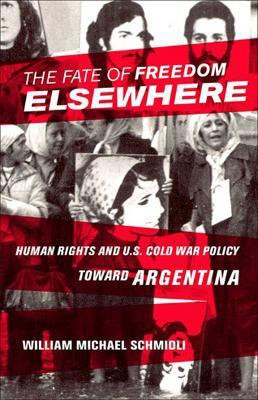The Fate of Freedom Elsewhere(English, Paperback, Schmidli William Michael)
Quick Overview
Product Price Comparison
During the first quarter-century of the Cold War, upholding human rights was rarely a priority in U.S. policy toward Latin America. Seeking to protect U.S. national security, American policymakers quietly cultivated relations with politically ambitious Latin American militaries-a strategy clearly evident in the Ford administration's tacit support of state-sanctioned terror in Argentina following the 1976 military coup d'etat. By the mid-1970s, however, the blossoming human rights movement in the United States posed a serious threat to the maintenance of close U.S. ties to anticommunist, right-wing military regimes. The competition between cold warriors and human rights advocates culminated in a fierce struggle to define U.S. policy during the Jimmy Carter presidency. In The Fate of Freedom Elsewhere, William Michael Schmidli argues that Argentina emerged as the defining test case of Carter's promise to bring human rights to the center of his administration's foreign policy. Entering the Oval Office at the height of the kidnapping, torture, and murder of tens of thousands of Argentines by the military government, Carter set out to dramatically shift U.S. policy from subtle support to public condemnation of human rights violation. But could the administration elicit human rights improvements in the face of a zealous military dictatorship, rising Cold War tension, and domestic political opposition? By grappling with the disparate actors engaged in the struggle over human rights, including civil rights activists, second-wave feminists, chicano/a activists, religious progressives, members of the New Right, conservative cold warriors, and business leaders, Schmidli utilizes unique interviews with U.S. and Argentine actors as well as newly declassified archives to offer a telling analysis of the rise, efficacy, and limits of human rights in shaping U.S. foreign policy in the Cold War.


